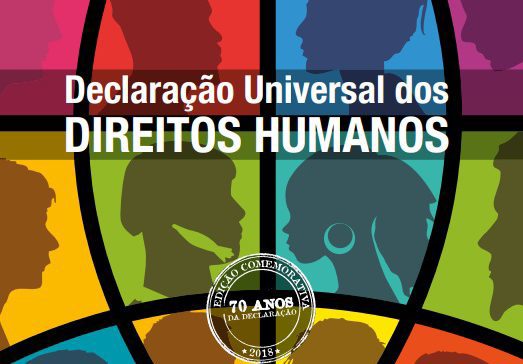
Fifty years ago in Brazil, during the military dictatorship, in a context of countless Human Rights violations, the Ecumenical Coordination of Service (Coordenadoria Ecumênica de Serviço: CESE) was born, inspired by the Christian principles that prioritize a dignified and abundant life and by the Universal Declaration of Human Rights, which serves as a frame of reference to guarantee basic dignity for the most socially and economically vulnerable.
Founded on 13 June 1973, in Salvador, Bahia, with participation from the Roman Apostolic Catholic Church (Igreja Católica Apostólica Romana: ICAR), represented by the National Conference ofBishopsofBrazil (Conferência Nacional dos Bispos do Brasil: CNBB), the Anglican Episcopal Church of Brazil (Igreja Episcopal Anglicana do Brasil: IEAB), the Brazil for Christ Evangelical Pentecostal Church (Igreja Evangélica Pentecostal O Brasil para Cristo), the Methodist Church (Igreja Metodista) and the Central Brazil Presbyterian Mission (Missão Presbiteriana do Brasil Central), with support from the World Council of Churches (WCC), CESE emerged as a sign of hope, adopting the ecumenism of service aimed at the defence of rights: a politicized service to meet the demands of the social movements and to support effective measures that help to transform the lives of the most marginalized and excluded people in the country.
In this way, CESE inaugurated a new concept of diakonia and philanthropy, overcoming welfarism and addressing the causes of the principal social problems, fulfilling its mission to strengthen social movements, the ecumenical and inter-religious movement, grassroots groups and other organizations engaged in the struggle for the political, economic, social and environmental transformations that drive the structures in which democracy with justice prevails, from a human rights perspective and for the integrity of the common home.
Over these five decades, CESE has been engaged in fulfilling its mission with dignity and responsibility. The Small Projects Programme has sown the good seeds of Ecumenism for Human Rights, supporting community initiatives and social movements throughout Brazil, particularly in the North and Northeast regions, which are hard for government resources and the large agencies to reach.
As well as the Small Projects Programme, CESE has provided training and aid in the area of Human Rights, making these accessible to social movements, the churches and Faith-based Organizations. On the 10 December, when we celebrate International Human Rights Day, we note our historical Human Rights Booklet, more than two million examples of which have been distributed since 1973.

The booklet, whose text is based on the Universal Declaration of Human Rights, articles from the International Covenant on Economic, Social and Cultural Rights (ICESCR) and references from biblical texts, reasserts that Human Rights violations are an affront to God himself. Regarding this edition, Pastor Sônia Mota, CESE’s Executive Director, said that:
“The clear affinity between the Declaration, the covenants and biblical interpretations, which point us to the Good News of the liberating Gospel of Jesus Christ, has served to encourage communities to read and study this publication. The booklet’s universal dimension is more than true and necessary. In short, there are many dilemmas in the world, such as racism, intolerance, the trivialisation of death and victims of war, not so different from our own situation, with the massacres of the landless, indigenous and quilombolas in ‘deepest Brazil’ and the extermination of young black people in city peripheries. Due to the greed of unbridled productivism, we have seen successive socio-environmental crimes against our forests and natural resources, particularly dictated by the unsustainable expansion of agribusiness and mining. A time of war without peace, aggravated by political instability with clear elements of a state of exception, which we hope will soon be overcome by the democratic will of the vast majority of good people.”
The words of our Executive Director demonstrate the topicality of the booklet’s themes, at a time of evidence of the reasons why Ecumenism for Rights remain so important and necessary within our context
In this way, CESE reasserts its commitment to continue fulfilling its mission, from a prophetic perspective that denounces Human Rights violations, asserting our belief that the collective construction of a fairer world for all is possible.

